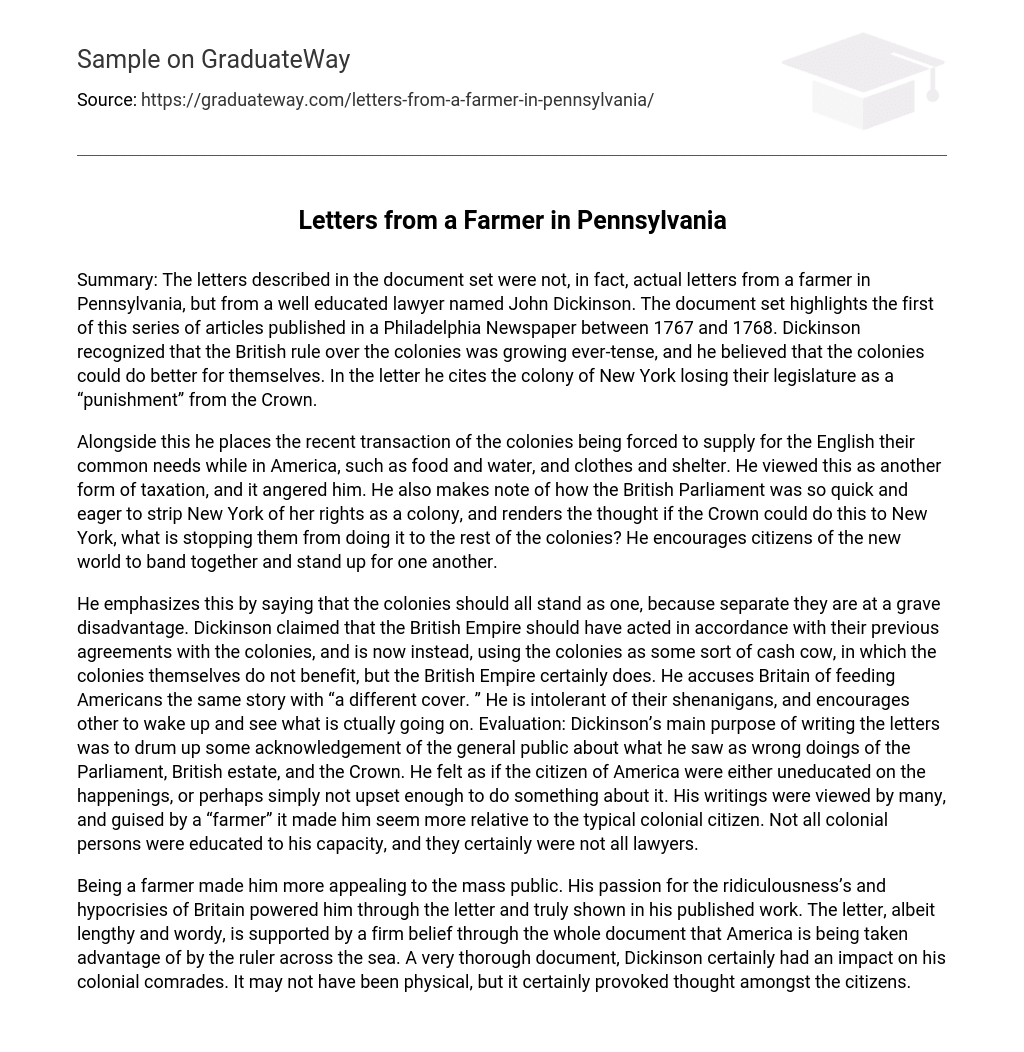Summary: The letters described in the document set were not, in fact, actual letters from a farmer in Pennsylvania, but from a well educated lawyer named John Dickinson. The document set highlights the first of this series of articles published in a Philadelphia Newspaper between 1767 and 1768. Dickinson recognized that the British rule over the colonies was growing ever-tense, and he believed that the colonies could do better for themselves. In the letter he cites the colony of New York losing their legislature as a “punishment” from the Crown.
Alongside this he places the recent transaction of the colonies being forced to supply for the English their common needs while in America, such as food and water, and clothes and shelter. He viewed this as another form of taxation, and it angered him. He also makes note of how the British Parliament was so quick and eager to strip New York of her rights as a colony, and renders the thought if the Crown could do this to New York, what is stopping them from doing it to the rest of the colonies? He encourages citizens of the new world to band together and stand up for one another.
He emphasizes this by saying that the colonies should all stand as one, because separate they are at a grave disadvantage. Dickinson claimed that the British Empire should have acted in accordance with their previous agreements with the colonies, and is now instead, using the colonies as some sort of cash cow, in which the colonies themselves do not benefit, but the British Empire certainly does. He accuses Britain of feeding Americans the same story with “a different cover. ” He is intolerant of their shenanigans, and encourages other to wake up and see what is ctually going on. Evaluation: Dickinson’s main purpose of writing the letters was to drum up some acknowledgement of the general public about what he saw as wrong doings of the Parliament, British estate, and the Crown. He felt as if the citizen of America were either uneducated on the happenings, or perhaps simply not upset enough to do something about it. His writings were viewed by many, and guised by a “farmer” it made him seem more relative to the typical colonial citizen. Not all colonial persons were educated to his capacity, and they certainly were not all lawyers.
Being a farmer made him more appealing to the mass public. His passion for the ridiculousness’s and hypocrisies of Britain powered him through the letter and truly shown in his published work. The letter, albeit lengthy and wordy, is supported by a firm belief through the whole document that America is being taken advantage of by the ruler across the sea. A very thorough document, Dickinson certainly had an impact on his colonial comrades. It may not have been physical, but it certainly provoked thought amongst the citizens.





